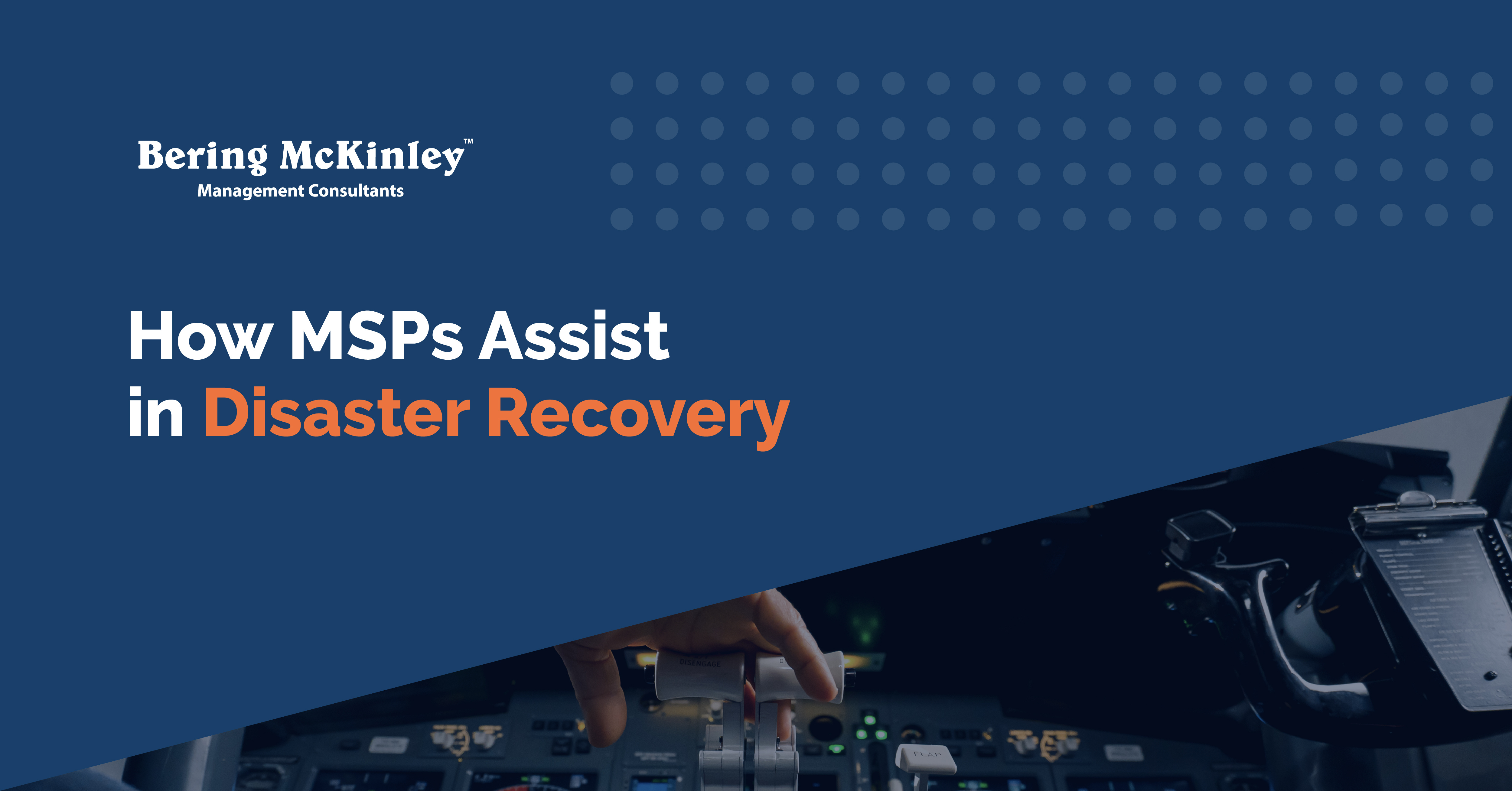Where the Money Really Is: Industries That Are a Goldmine for Smart MSPs
Every Managed Service Provider has a tale about a client whose network "just went down on its own," which is about as believable as a dog eating your...

Even with the greatest of IT systems, disaster can strike at any moment, leaving businesses vulnerable to data loss and operational disruption. Whether it's a natural calamity or a cyberattack, the consequences can be devastating for business owners. MSPs are here to help you weather the storm. They offer disaster recovery solutions that ensure your business remains resilient, no matter what challenges come your way.
MSPs serve as your allies in disaster recovery, providing valuable insights and practical strategies to safeguard your operations. From understanding their role to leveraging their expertise, here is how MSPs help your business get back on its feet as fast as possible in case of a disaster.
MSPs offer proactive monitoring and maintenance of your IT systems. This means that potential threats can be identified and mitigated before they escalate into full-blown disasters. With 24/7 monitoring, they can detect unusual activity and address issues promptly, minimizing the risk of data loss and downtime.
MSPs provide comprehensive backup solutions. Regular data backups are essential for effective disaster recovery. MSPs ensure that your data is securely backed up and easily accessible when needed. They use industry-leading tools to automate the backup process, reducing the likelihood of human error and ensuring data integrity.
MSPs offer expertise in developing and testing disaster recovery plans. These plans outline the precise steps to be taken in the event of a disaster, ensuring a swift and coordinated response. MSPs conduct regular drills and simulations to test these plans, making sure your team is well-prepared and confident in executing them.
Every business is unique, and so are its disaster recovery needs. MSPs understand this and work closely with you to customize plans that align with your business objectives and priorities.
One of the first steps in customizing a disaster recovery plan is conducting a thorough risk assessment. MSPs analyze your business operations, identify critical systems and data, and assess potential vulnerabilities. This helps them determine which aspects of your business require the most attention and resources in a disaster recovery scenario.
Once the risks are identified, MSPs collaborate with you to design a tailored disaster recovery strategy. This includes establishing recovery time objectives (RTOs) and recovery point objectives (RPOs) that match your business's tolerance for downtime and data loss. By setting clear goals, MSPs ensure that recovery efforts align with your needs and expectations.
Additionally, MSPs consider your business's evolving nature. They regularly review and update your disaster recovery plan to accommodate changes in your operations, technology, and industry regulations. This dynamic approach ensures that your business remains protected, no matter how your circumstances evolve.
In recent years, cloud computing has revolutionized the way businesses approach disaster recovery. MSPs leverage cloud solutions to enhance the resilience and flexibility of your disaster recovery strategy.
One key advantage of cloud-based disaster recovery is scalability. Traditional on-premises solutions often require substantial upfront investments in hardware and infrastructure. In contrast, cloud solutions allow you to scale your resources up or down based on your needs. MSPs help you take advantage of this flexibility, ensuring that your disaster recovery infrastructure is both cost-effective and responsive.
Another significant benefit of cloud-based disaster recovery is geographic redundancy. By storing data across multiple locations, MSPs protect your critical information from localized disasters. This means that even if one data center is affected, your data remains safe and accessible from another location.
Furthermore, cloud solutions offer rapid data recovery. In the event of a disaster, MSPs can quickly restore your data and systems from the cloud, minimizing downtime and enabling your business to resume operations swiftly. This agility is crucial in today's competitive landscape, where every minute of downtime can impact your bottom line.
Effective communication is a vital component of successful disaster recovery. MSPs recognize this and prioritize clear and efficient communication throughout the recovery process.
MSPs establish robust communication protocols to ensure that information flows seamlessly between your team and theirs. They designate key points of contact and establish communication channels, such as email or dedicated hotlines, to facilitate real-time updates and coordination.
Also, MSPs provide regular status updates and progress reports during recovery. These updates keep you informed about the status of your systems and any ongoing recovery efforts. By maintaining transparency, MSPs ensure that you clearly understand the situation and can make informed decisions.
Furthermore, MSPs facilitate communication between different departments within your organization. They coordinate with key stakeholders to ensure that everyone is on the same page and working towards a common goal. This collaborative approach minimizes confusion and enhances the efficiency of the recovery process.
Time is of the essence in disaster recovery, and MSPs understand the importance of expediting recovery efforts.
MSPs leverage automation and orchestration tools to streamline the recovery process. These tools automate repetitive tasks and workflows, reducing the time required to restore your systems and data. By eliminating manual intervention, MSPs ensure a faster and more efficient recovery, minimizing downtime and disruption.
Additionally, MSPs conduct regular disaster recovery drills and simulations. These exercises test your recovery plan's effectiveness and identify improvement areas. By refining the process through practice, MSPs ensure that your team is well-prepared to execute the recovery plan swiftly and efficiently.
Furthermore, MSPs maintain a network of strategic partnerships with third-party vendors and service providers. These partnerships enable MSPs to access additional resources and expertise when needed, further expediting recovery. By leveraging these relationships, MSPs ensure that your business receives the support it needs to recover quickly and effectively.
Disaster recovery is not just about technology; it's also about building a culture of resilience within your organization. MSPs play a key role in fostering this culture and empowering your team to respond effectively to challenges.
MSPs provide training and educational resources to equip your team with the knowledge and skills needed for effective disaster recovery. They conduct workshops and webinars to raise awareness about potential threats and best practices for mitigating them. By investing in training, MSPs empower your team to act confidently and decisively in the face of adversity.
Additionally, MSPs promote a proactive mindset by encouraging regular reviews and updates to your disaster recovery plan. They emphasize the importance of staying vigilant and being prepared for unexpected events. By fostering a culture of continuous improvement, MSPs ensure that your organization remains agile and resilient.
Furthermore, MSPs facilitate collaboration and knowledge sharing among different departments within your organization. They encourage cross-functional teams to develop and test disaster recovery strategies. This collaborative approach fosters a sense of ownership and accountability, strengthening your organization's overall resilience.

Every Managed Service Provider has a tale about a client whose network "just went down on its own," which is about as believable as a dog eating your...
.jpg)
If you're in the MSP (Managed Service Provider) business, you probably already know the critical role ConnectWise plays in managing your daily...